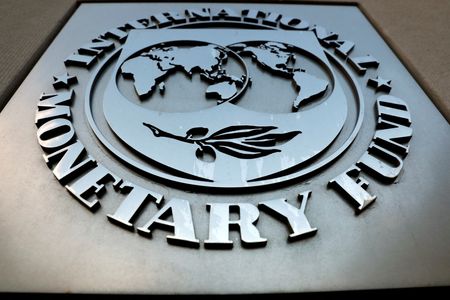DUBAI (Reuters) – Economic activity in the Middle East and Central Asia was resilient with recovery continuing in 2022 but the region must guard against growing global headwinds and push ahead with reforms, the International Monetary Fund said on Monday.
While crude exporters benefit from an oil windfall projected to accrue a cumulative $1 trillion over 2022-2026, emerging market and middle-income states face deep terms-of-trade shock and curtailed access to market financing.
Countries should be on alert as “headwinds are growing, vulnerabilities are growing” with a global economic slowdown, volatile food and energy prices and tightening financial conditions, IMF Middle East and Central Asia Director Jihad Azour told Reuters ahead of the October report’s release.
He said the region needed to “act now, act fast and act in a comprehensive way” on structural reforms, and that oil exporters should use this opportunity to strengthen their buffers.
An urgent policy challenge was tackling the cost-of-living crisis by restoring price stability, protecting vulnerable groups through targeted support and ensuring food security.
“Higher food prices and more pervasive food and energy shortages could lead to food insecurity and social unrest, particularly in 2023,” the IMF report said, warning of broad-based inflation.
The impact of the Ukraine war on Caucasus and Central Asia (CCA) was milder than expected, it said, with GDP seen slowing to 3.8% in 2022, upgraded from the April forecast of 2.6%. The IMF put CCA growth at 5.6% in 2021.
This was due to an upward revision to Russia’s GDP, unexpected inflows such as relocation of workers and firms from Russia and significant money transfers, resilient trade, and fiscal stimulus in countries like Kazakhstan and Tajikistan.
Economic growth in 2023 was forecast by the IMF at 4% percent and likely narrow to 3.5% in the medium term. Inflation was forecast at 12.9% this year and 10.5% in 2023.
“Spillovers from the war could put the CCA’s progress toward reducing poverty and inequality at risk,” the report said. “The war risks raising poverty by about 1 percentage point and inequality by about 1 percent and reducing real household consumption by about 2 percentage points, on average.”
In the Middle East and North Africa GDP was forecast to grow 5% this year, up from 4.1% in 2021, and then expected to slow to 3.6% in 2023 due to worsening global conditions.
Inflation was put at 12.1% in 2022 and 11.2% next year.
Higher interest payments and increased reliance on short-term financing in some emerging markets and middle-income countries such as Egypt, Pakistan and Tunisia were expected to raise public gross financing needs to $550 billion over 2022-23, which is $22 billion above the earlier period.
(Reporting by Ghaida Ghantous and Rachna Uppal; Editing by Alison Williams)

